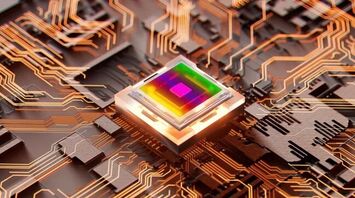What is a Quantum Processing Unit (QPU)?

Central to a quantum computer is its quantum processor, differing significantly from the CPUs in traditional computers. This core component, known as the quantum processing unit (QPU) or quantum processor, utilizes quantum bits—qubits—instead of the binary bits prevalent in classical computing. Subatomic particles known as qubits harness the properties of quantum mechanics to represent and process large amounts of data.
Analogous to the central processing unit (CPU) in conventional computers that handles calculations with binary bits (0s and 1s), a quantum processor manipulates qubits to perform tasks. However, unlike classical CPUs, quantum processors rely on quantum logic gates to manipulate qubits. These gates leverage the unique aspects of quantum physics, allowing quantum computers to execute calculations considerably faster than binary computers.
Currently, quantum technology is in its nascent stages and lacks a standard architecture, leading to variations in the operation of different quantum processors. This architectural diversity complicates the comparison of capabilities across various quantum processors.
How Do Quantum Processors Work?
Developing quantum processors poses several practical challenges, particularly in maintaining qubit stability and integrating effective error correction systems, both crucial for accurate, large-scale calculations. Qubits are inherently fragile, susceptible to external environmental conditions. Stability is typically achieved using high-intensity magnetic fields or by cooling qubits to near absolute zero.
R&D endeavors continue to explore methods to detect and correct unwanted changes in qubit states due to external interferences. These challenges render quantum processors highly sensitive and unsuited for environments outside specialized laboratories.
Furthermore, classical algorithms don't apply to quantum physics. Thus, quantum processors employ quantum algorithms that fundamentally differ, utilizing quantum properties to process data at exceptional speeds.
Although quantum processors can handle computations far beyond what today's supercomputers can manage, they cannot solve intrinsically unsolvable problems. The development trajectory of QPUs mirrors the early stages of classical CPUs, with current architectural diversity expected to converge towards a unified standard as the technology matures.
Earlier, SSP wrote that Apple withdrawn from OpenAI investment talks.



















